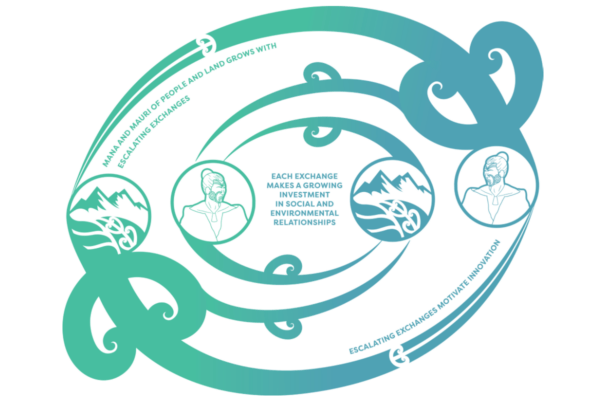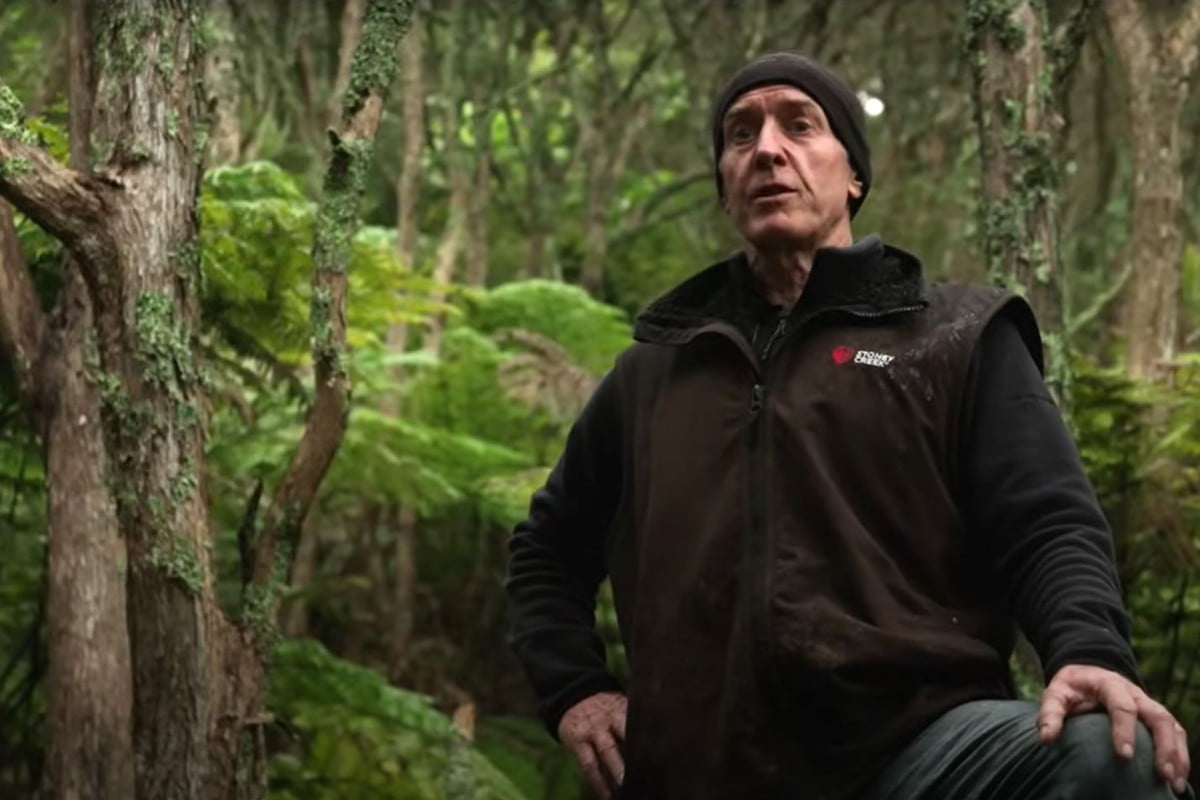Māori Values Motivate Entrepreneurship
The approaches and values of Māori agribusinesses have been proven to grow export value and benefit our people and environment.
The approaches and values of Māori agribusinesses have been proven to grow export value and benefit our people and environment.
Māori enterprises are typically guided by indigenous values of environmental stewardship, social responsibility, intergenerational wealth creation, and cultural revitalisation. These values are based on a foundation of tauutuutu: escalating social and economic investments that build the welfare and mana of others, with the anticipation this will be reciprocated.
Our Land and Water research has demonstrated these value drivers work in synergy, creating an ‘upward spiral’ that motivates innovation and entrepreneurship. This understanding offers a pathway to generate environmental, economic, and social benefits from the primary sector in Aotearoa, contributing to the Our Land and Water objective to improve water quality without impacting productivity.
In mainstream Western thinking, protecting the environment and generating profit are often viewed as trade-offs: to achieve one means sacrificing the other. A range of research programmes funded by Our Land and Water over its lifetime sought to learn from Māori enterprises successfully minimising such trade-offs.
The five projects highlighted below also supported Māori enterprises to grow value, develop processes, adopt technology and create networks, culminating in an emerging consortium to launch a technology platform with potential benefits for Māori enterprises and collectives, national digital infrastructure, and non-Māori entities.
Whenua Life Values research (2017–19) investigated high-performing Māori enterprises, co-led by Dr John Reid (University of Canterbury’s Ngai Tahu Research Centre, director of Earth Quotient) and Prof Jason Mika (University of Waikato). It found the most profitable were those with greater investment in environmental values and adherence to the tauutuutu ethic. Māori agribusinesses that experienced strong wealth generation (whai rawa) also exhibited growth in mauri (health) of their whenua, improved social relationships (manaakitanga), and had more effective governance (mana whakahaere).
This finding was reinforced by Storying Kaitiakitanga research (2017–19), which used different techniques to define a similar ‘upward spiral’ of connected outcomes: oranga (wellbeing), tatai hononga (building social capital), tiaki taiao (enhancing natural capital), and ōhanga (growing economic capital). It also identified tauutuutu as a key ethic for Māori business.
Next, Rewarding Sustainable Practices research (2019–22) analysed the values embedded in successful case study businesses, including several Māori enterprises. The key output was the Value Chain Compass framework to support agribusinesses to grow value. Researchers also provided value chain advice, market intelligence and new evidence to its case studies, which led to transformative changes. For example, two Ngāi Tahu enterprises selling pounamu and perfume products subsequently targeted higher-value consumer niches, adapted branding to highlight indigenous provenance, and improved traceability and cultural authenticity credentials. These approaches to unlocking value premiums are ongoing, and details remain commercially sensitive.

In 2021, a think piece led by Dr Reid described how tauutuutu is driving entrepreneurship, innovation and sustainability in primary production, highlighting the potential for this ethic to be adopted more broadly in Aotearoa to accelerate our transition from volume to value-add exports. The research suggested a tauutuutu land-based economy would add value to our ‘clean, green’ brand, combining these desirable ecological attributes with authentic Māori values, which have a high cachet among international market segments.
Finally, the Kaitiaki Intelligence Platform (KIP) programme (2022–24), also led by Dr Reid, worked with Māori agribusinesses to develop a data platform that combines indigenous wisdom with cutting-edge environmental monitoring technologies (e.g., remote sensing, AI, digital twins). This will provide Māori farming collectives with environmental intelligence to optimise land-use and management decisions, and provide data to verify sustainable production and indigenous authenticity when sold into premium markets.
A unified consortium is now being built by Māori agribusinesses collectives and iwi to attract investment and develop the KIP platform, with 20 interested parties. There is also substantial interest from non-Māori entities in using KIP approaches to meet environmental sensing needs, including a major irrigation scheme, impact investors and Crown entities. Other spin-off initiatives include a Ngāi Tahu environmental digital twin project, and a partnership with Hinemoana Halo, a Māori-led technology group exploring carbon and biodiversity verification credits that has captured almost US$100 million in international investments.
There is growing recognition among agrifood leaders in Aotearoa that wisdom inherent in te ao Māori could be our superpower for food production. With a commitment to centring te ao Māori in research, Our Land and Water was the ideal funder for research that empowered Māori enterprises to demonstrate the ‘upward spiral’ of Māori values in business, generate greater value for indigenous products, and become first-movers in the next generation of environmental intelligence products.
This article was prepared as an impact case study for MBIE as part of Our Land and Water's 2023–24 annual reporting requirement.
Additional information:
- Kaitiaki Intelligence Platforms website
- The Value Project website
- How Māori Agribusiness is Leading Aotearoa’s Farming Future article summarising tauutuutu think piece
Author
 View Our Strategy Document 2019 – 2024
View Our Strategy Document 2019 – 2024




Leave a Reply